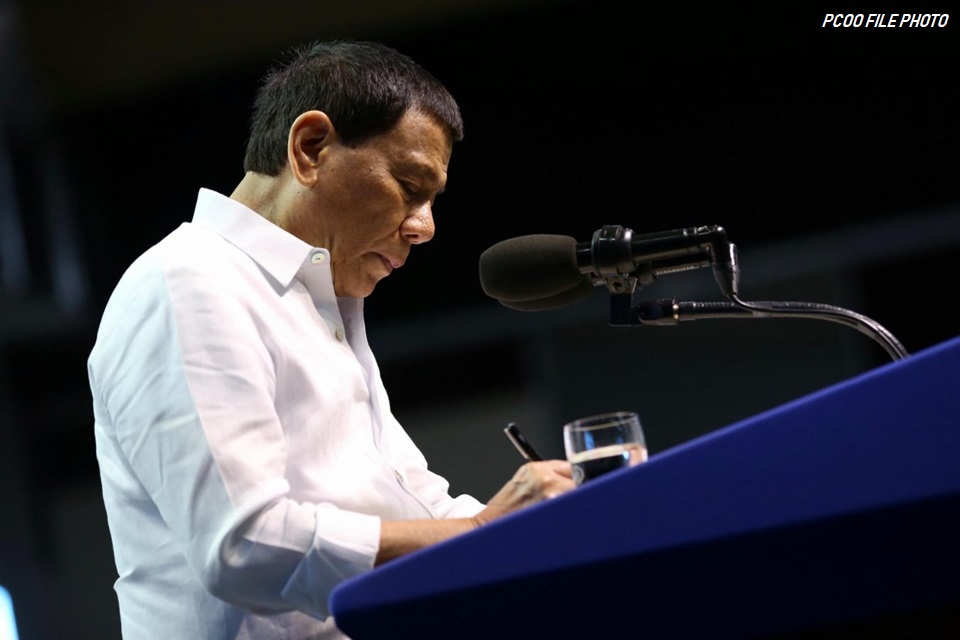President Rodrigo Duterte has signed into law Republic Act No. 11363 or the Philippine Space Act, which was introduced as House Bill 3637 at the House of Representatives by Second District Rep. Aris Aumentado in 2016.
Duterte signed RA 11363 on August 8 but a copy of the law was released to the media on Tuesday.
The law establishes the Philippine Space Agency (PhilSA), which will oversee activities and tackle issues related to space science, space technology, and applications and will be the country’s first official representation in the international space community.
RA 11363 also creates the Philippine Space Development and Utilization Policy, the country’s strategic roadmap in achieving the goal of being “space-capable” and “space-faring” within the next decade.
Both Aumentado and former Sen. Benigno “Bam” Aquino IV who sponsored the counterpart bill at the Senate showed acknowledgement for the measure’s enactment.
Aumentado and former Zamboanga del Norte Rep. Frederick Jolosjos’ House Bill 3637, which was later merged with other similar measures into HB 08541, highlighted the need for space technology for the improvement of satellites, communications, environmental monitoring, navigation, disaster assessment, defense and security.
Aquino also emphasized that the law encompasses various industries by improving the country’s technological capabilities.
“I’ve always believed that a solid space program can improve disaster management, enhance the lives of Filipino farmers, speed up our internet and telecommunications systems, and help us build more livable cities. This is a big win for our science community and for the Filipino people,” said Aquino.
The PhilSa which will be an attached agency to the Office of the President (OP) will get billions in budget allocation.
Under the law, an initial P1 billion funding for the space program will be taken from the current fiscal year’s appropriation of the OP.
Budget for the subsequent operation and maintenance of the agency will be covered in the General Appropriations Act.
A total of P10 billion in additional funding will come from the gross income of the Philippine Amusement and Gaming Corporation and the Bases Conversion and Development Authority for five years after the effectivity of the act, with P2 billion to be released to PhilSA yearly.
Meanwhile, the law also states that Philippine Space Development and Utilization Policy will prioritize areas of space science and technology applications (SSTAs) that would address national issues, promote the efficient utilization of space assets and resources, establish capacity-building measures for human resources development, strengthen national defense, and enhance international cooperation.
It will also focus on six key development areas namely: National Security and Development; Hazard Management and Climate Studies; Space Research and Development; Space Industry Capacity Building; Space Education and Awareness; and International Cooperation.
Moreover, it also creates the Philippine Space Council (PSC) which will be the principal advisory body for the coordination and integration of policies, programs, and resources affecting science and technology applications. The PSC will be chaired by the President.
Aside from the Philippine Space Act, Duterte also signed the “Murang Kuryente” Act (RA 11371), which seeks to reduce the country’s electricity rates; the “Anti-Obstruction of Power Lines Act” (RA 11361) which aims to ensure the continuous and uninterrupted transmission and distribution of electricity; and an act (RA 11360) mandating service charge in hotels and restaurants to be distributed in full to all employees. (RT with a report from PNA)

